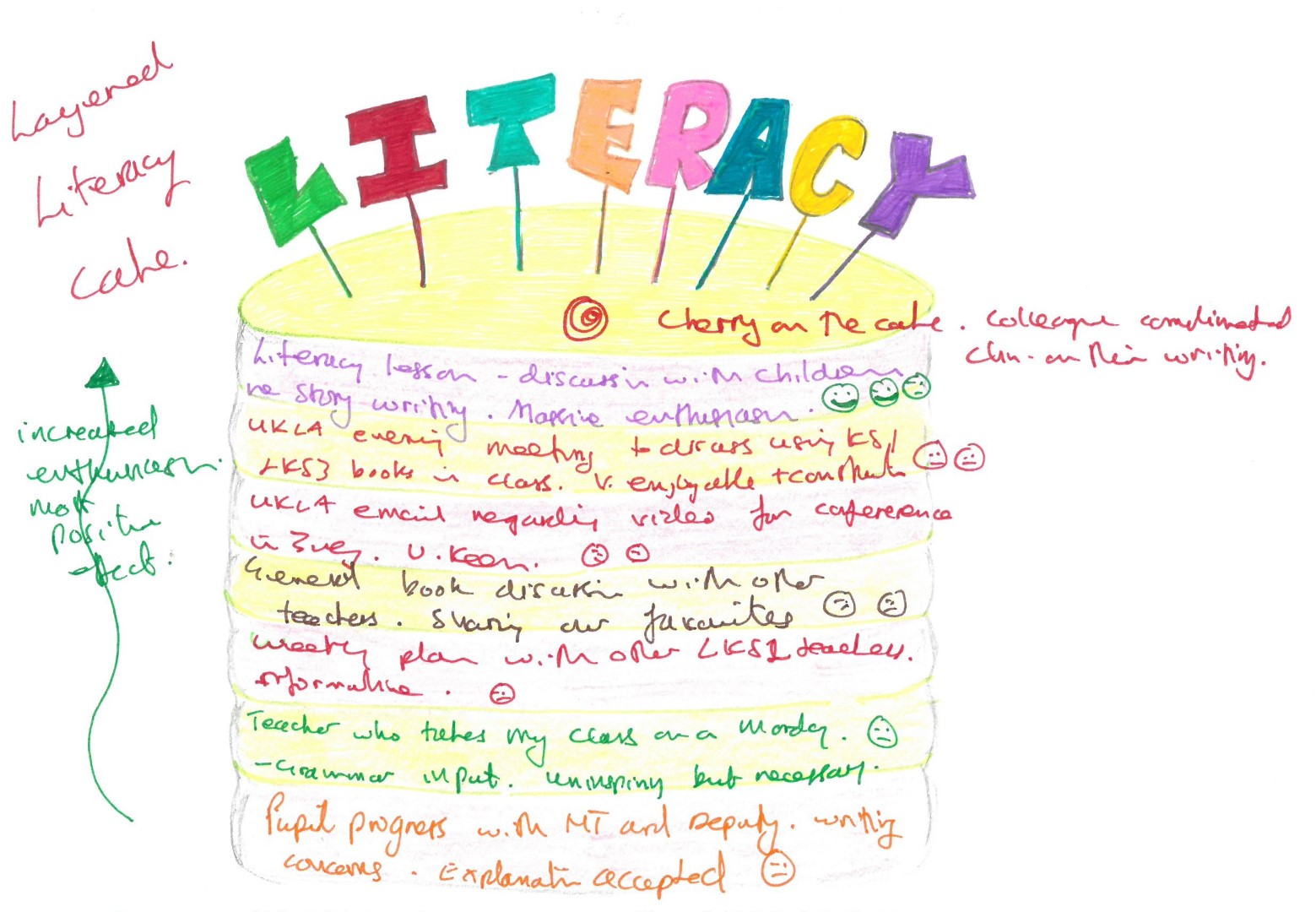PROFESSIONAL LIFE
Conversations around literacy
“So these are just different conversations or inputs that impacted on my writing or writing of the children. So I'll start at the bottom. That was the pupil progress meetings today as it happens with the head teacher and deputy and we discussed the other subjects, but I'll just focus on the writing, writing concerns because I felt I had quite a few who weren't where they should be. So the discussion revolved around why because we do a lot of reading ...”
Working smarter rather than harder when planning
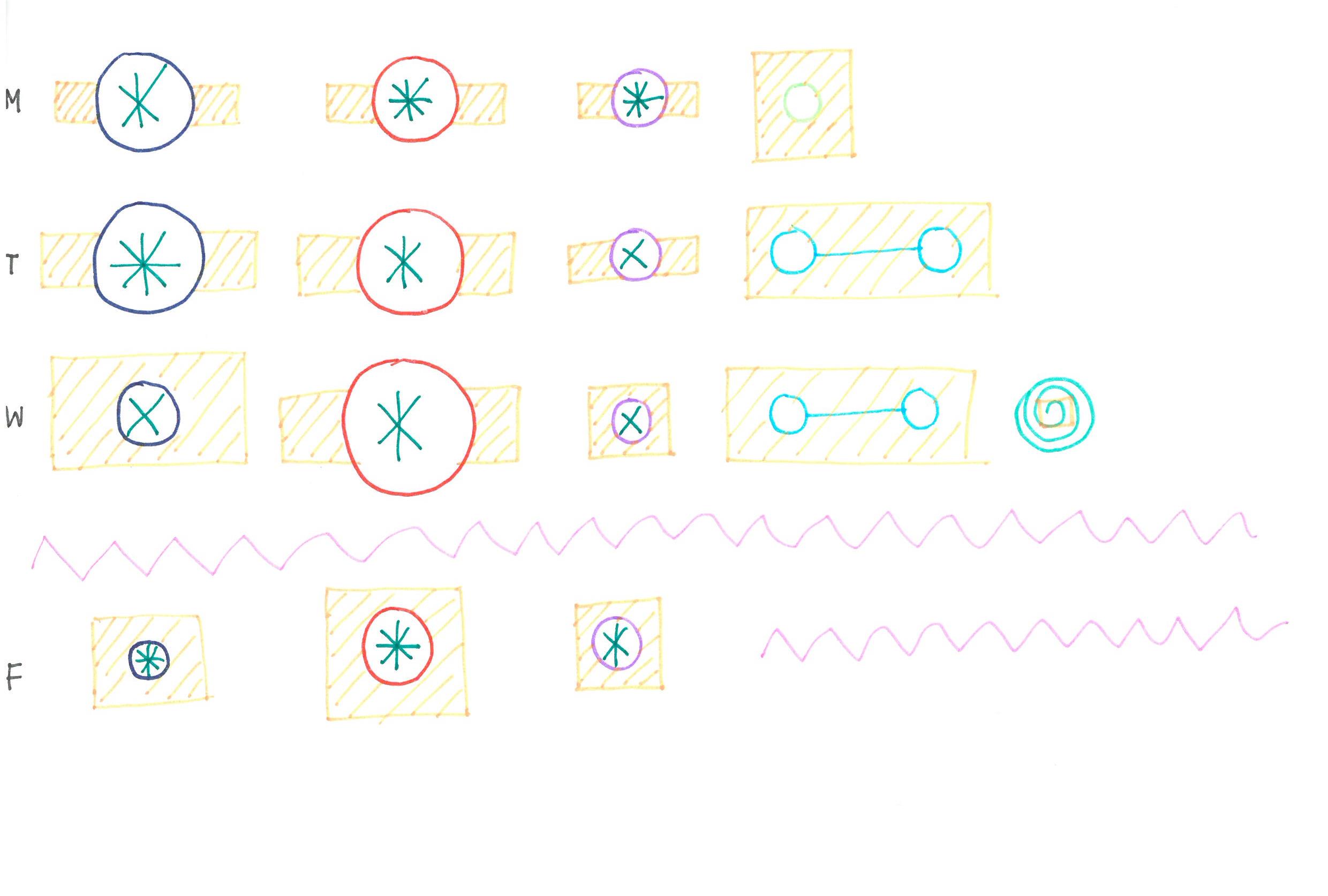
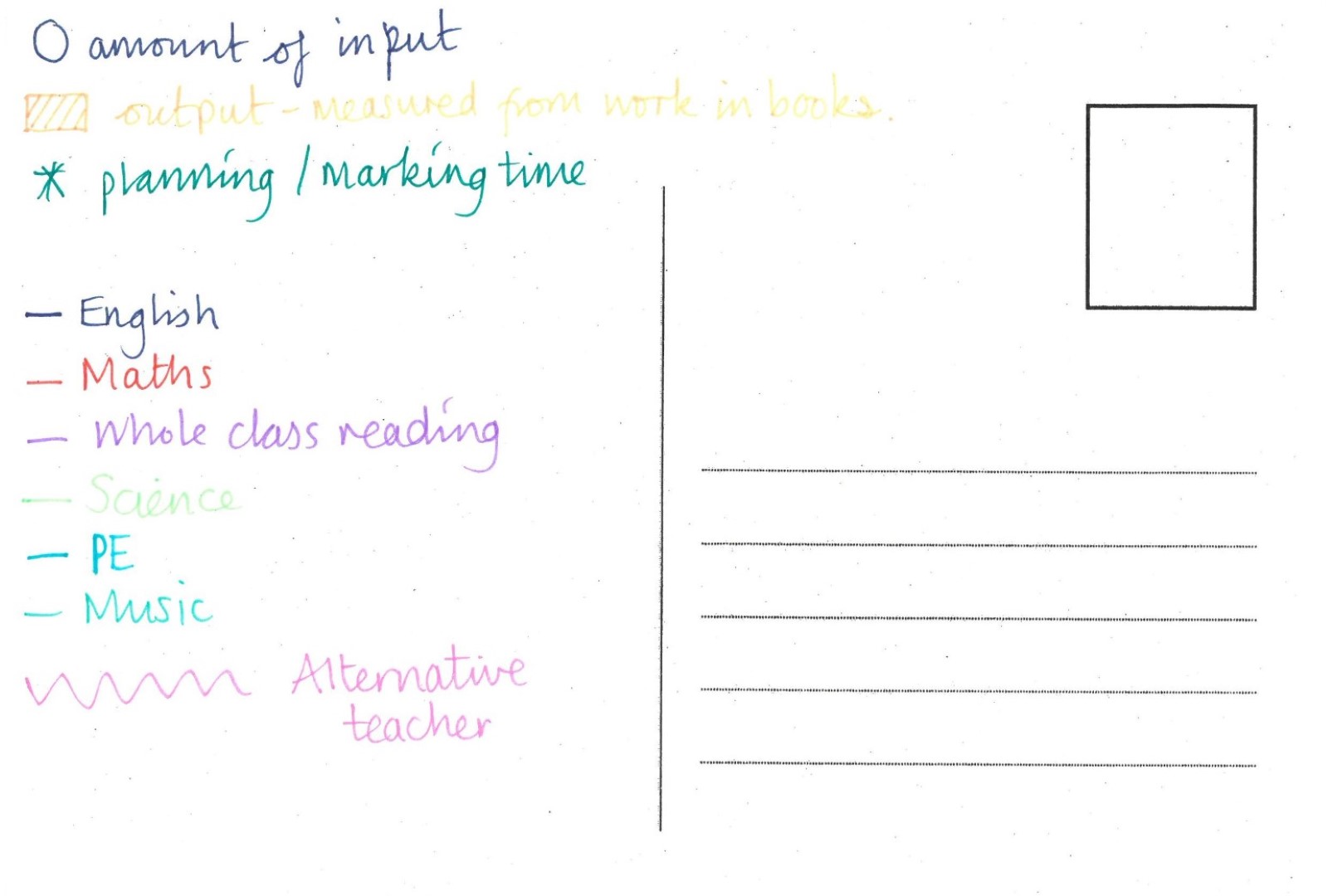
"Like I said, it raised a few questions for me but, again, the focus for me was working smarter rather than harder because there are some sessions that you put a load of input in, it takes hours to plan and then the kids come away and they've got two or three sentences and you think why did I waste all of my Sunday sorting this out and you've got nothing from it? I just think, again, it's something in teaching that we need to reflect on a little bit and make sure that the children are the ones that are doing the hard work, not us"
How much of my week is spent on English-related work

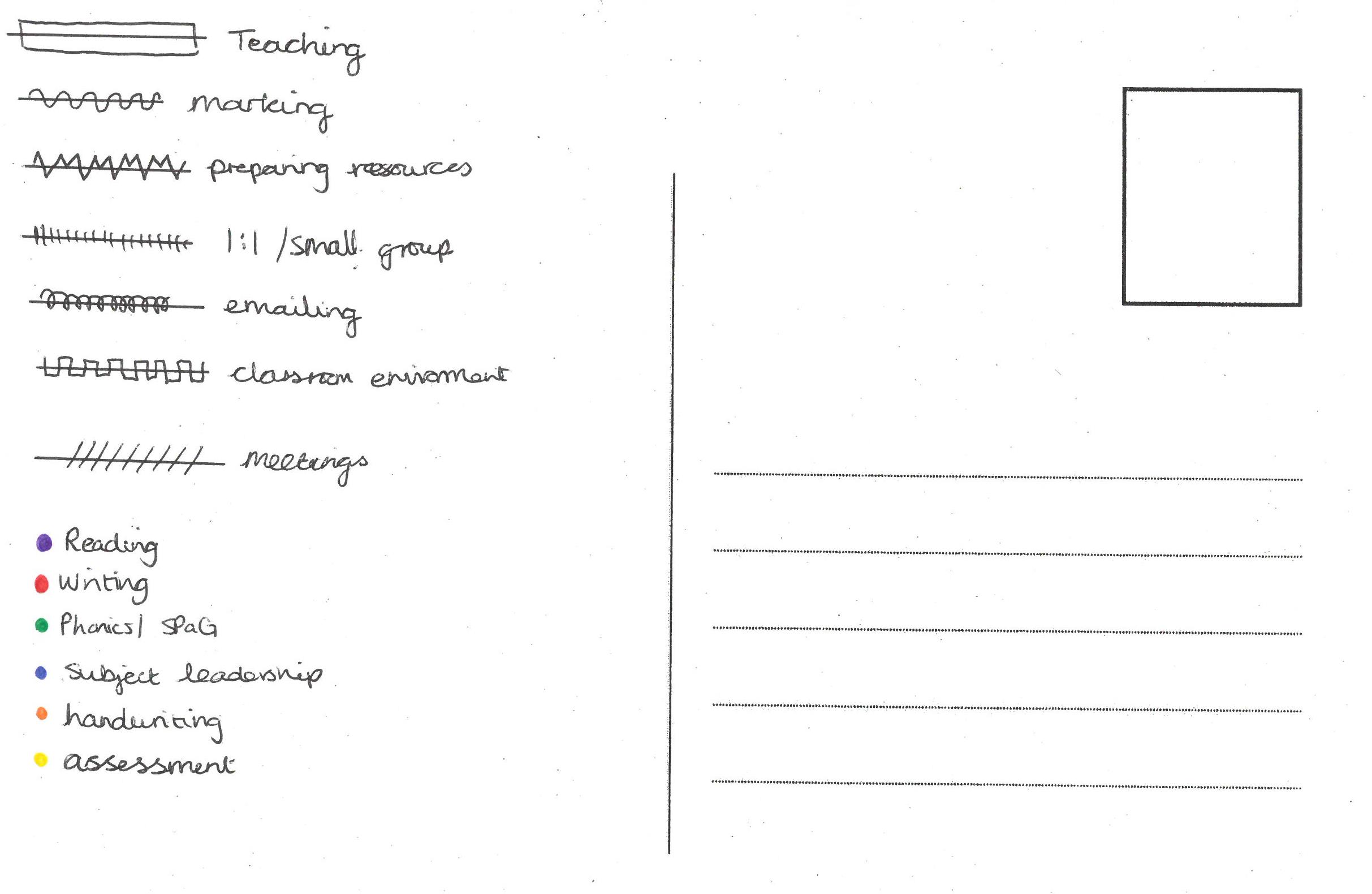
"So I just went through my entire week and everything English that I did ... So teaching, marking, resources, planning as well, one to one, small group work, emailing, classroom environment, meetings. Then the different colours are reading, writing, phonics and SPAG, leadership, handwriting and assessment. Then there's all the lines for times.
So this stuff at the beginning of the day is when you're preparing resources, morning, and then there's this stuff in the evening, probably late in the afternoon where you're putting up displays and doing stuff and it just kind of struck me, it should have done, it's never struck me before, how a teacher days begins and ends often with that really practical doing stuff activity."
Time spent by a teacher on different literacy-related activities
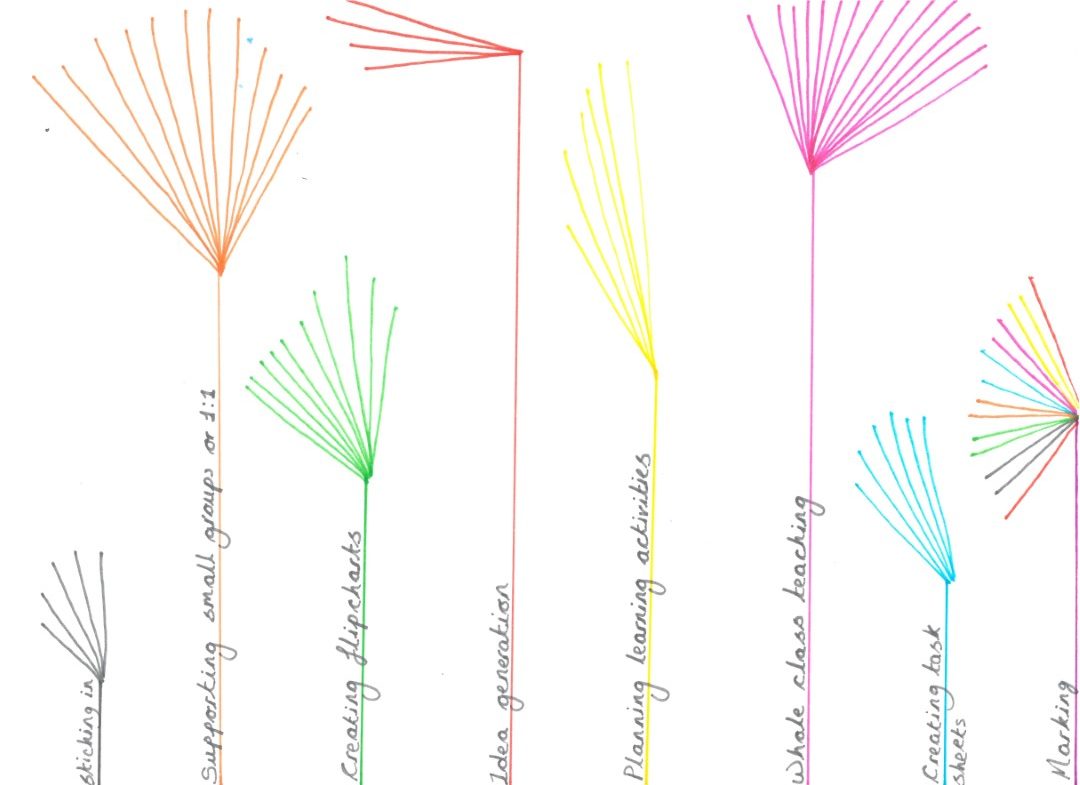
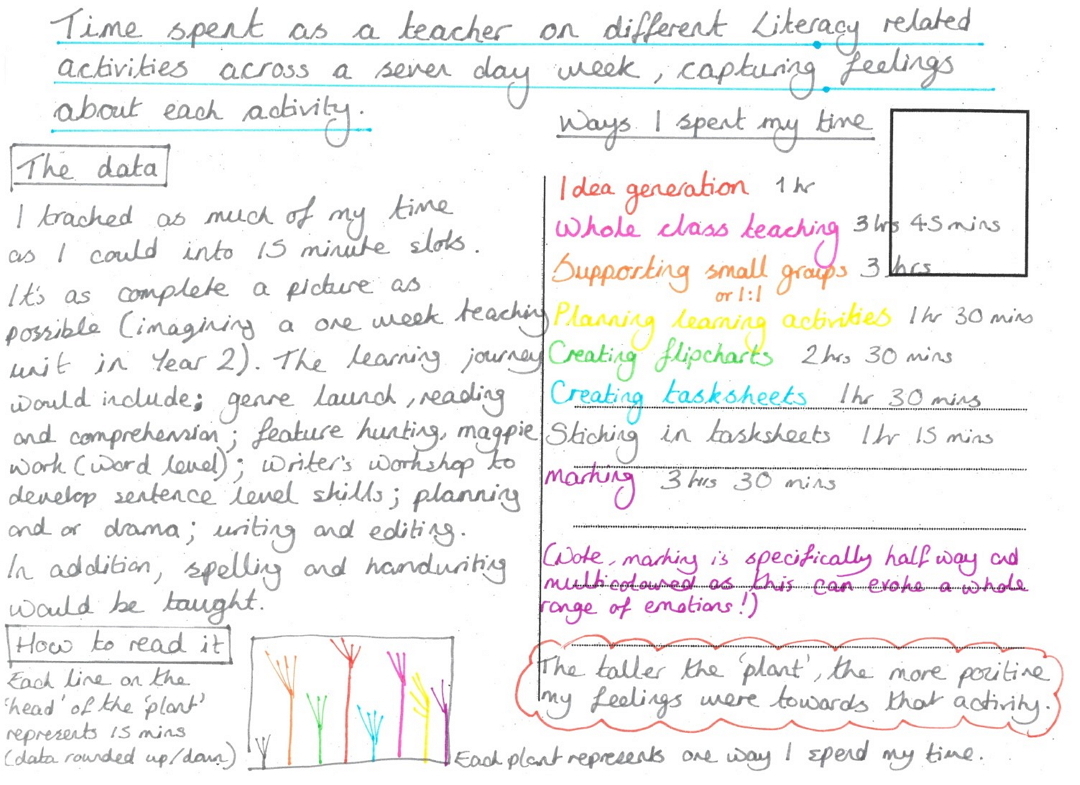
“So I'll just read along it. In order the thing that I get the most satisfaction or I enjoy the most is generating ideas and then whole class teaching so it's all about the teaching and being with the children. I put that not as high as this one because you can get some really rotten experiences when you teach as well, so although the highs would obviously outweigh that on the whole I've got that there. Next I've got supporting small groups or working one-to-one. Then planning learning activities. I've broken this down in to tiny details. I'll take a step back. So what I was thinking [...] how do I produce a unit and a resource and everything? I was thinking, okay, so I spend time generating ideas, planning activities how to teach that concept, then creating flipcharts, creating worksheets, then if I was then teaching it because I don't always teach it to other people as well, sticking worksheets in, teaching the children, doing pre-learning with small groups, supporting those that might not be getting it and then marking the results. So there are my different things. So it was how I spend my time.”
A taxonomy of literacy activities
"And then also teacher satisfaction scale there, so from 1 to 10 how satisfied I was with the activities that we'd done. Certainly as you get further out for deeper levels of thinking that's where the high satisfaction is for me as a teacher. You can see, by the time I get to the rewriting Theseus and the Minotaur from the Minotaur's perspective, that I was really pleased with ...
Even when I'm at home marking it, my husband's getting fed up with me going, 'Just listen to this one, listen to this opening paragraph'! But that's me as a teacher - I do share things out with people all the time …
We were sending children with books to other teachers to go and share them, so that's the headteacher to see the writing, to the Year 5 teacher who was the Year 6 one last year, so as much as anything for him to validate my judgements or to say what do you think to this? I worked very closely with him. It's my first year in Year 6 so he gives me quite a bit of guidance to share those."
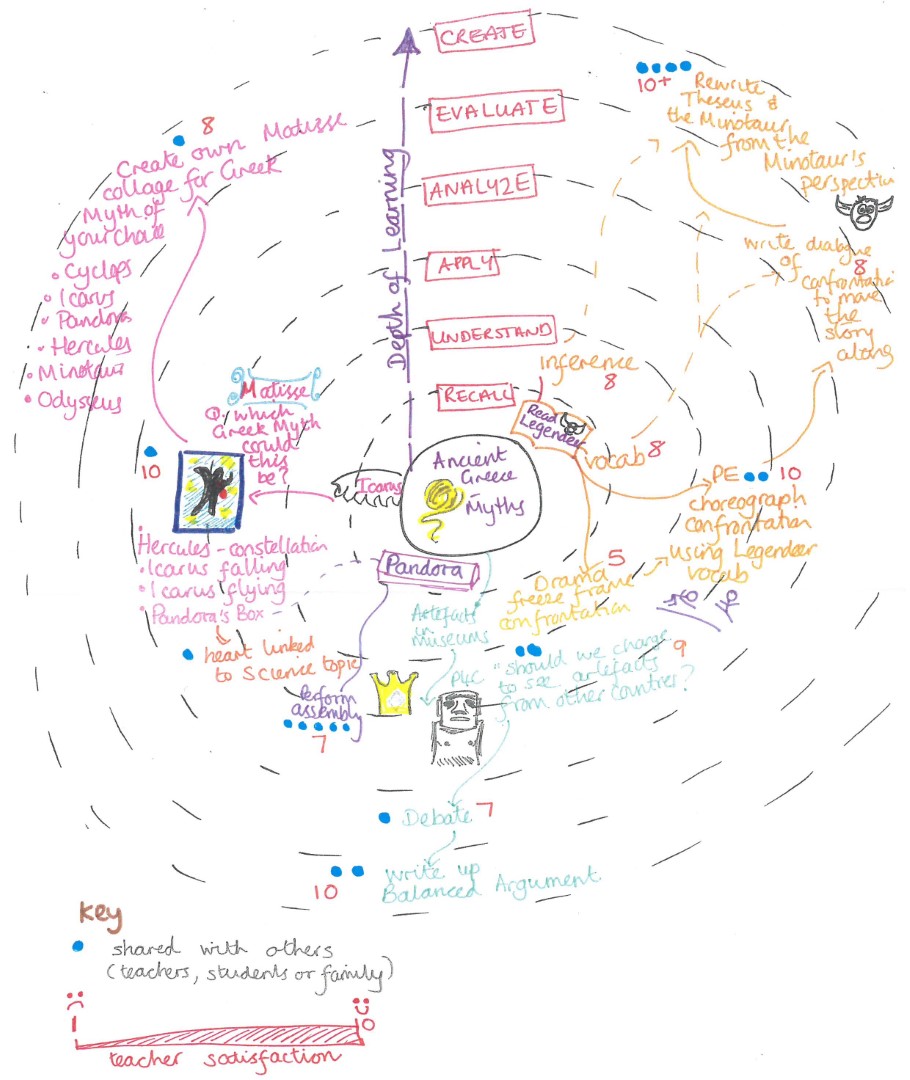
How time becomes filled during a working week
“What happened was on Tuesday I had a phone call from my wife to say that she was in the car with both the kids and she'd thrown her back out and she physically couldn't move ... so Tuesday here it says 'had to go home, personal life, arghhh'. I literally had to run home from school to get her. So what this postcard sort of took on was more about what happens when other stuff gets in the way of school and then how stressful that becomes.
Anyway, it was a brilliant week, loved it. But I think what it was one of those where school just, it's one of them isn't it, there isn't - when you're there you don't feel like there is the allowance to be off your game and even when you go home you don't feel like you're allowed.”
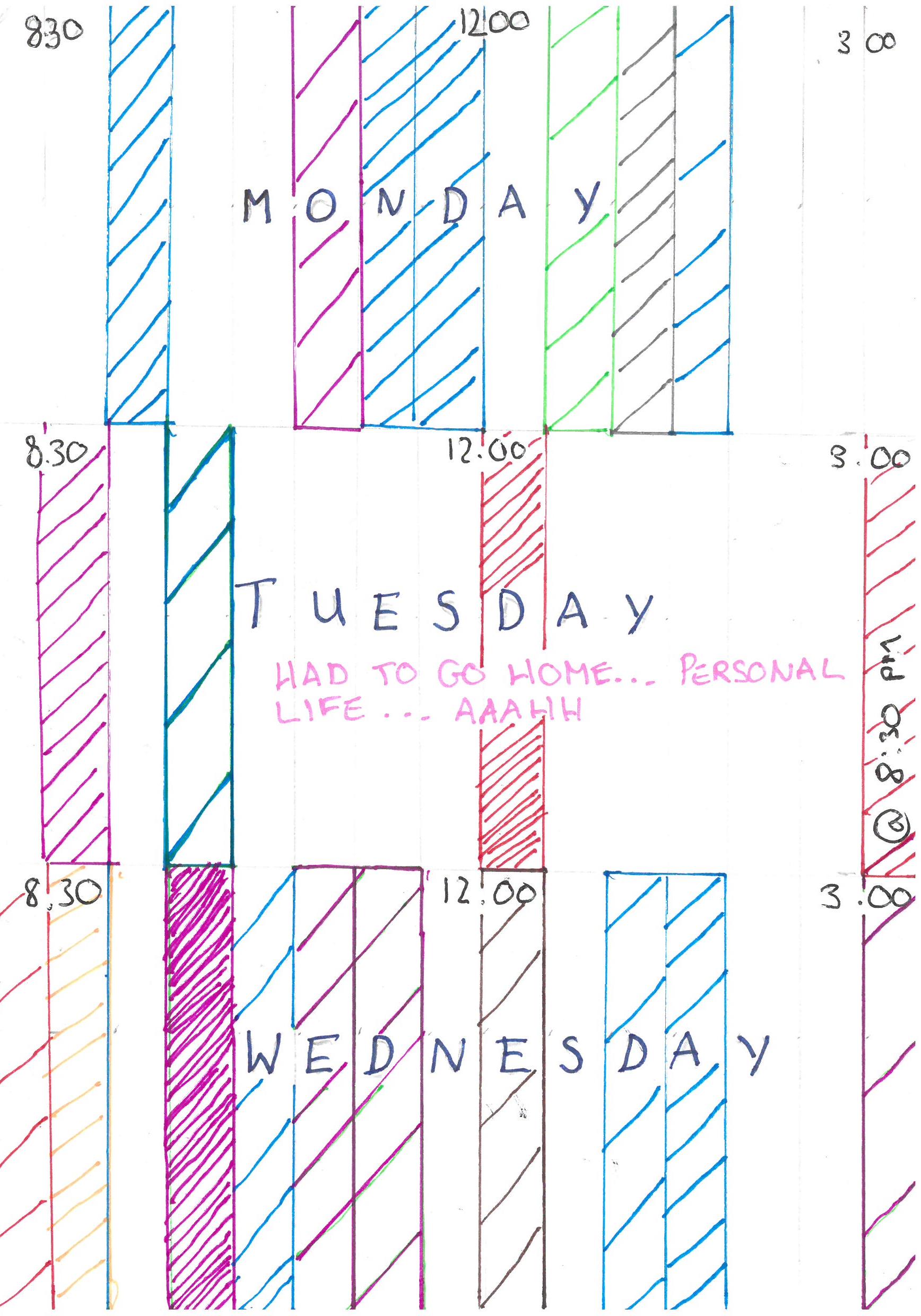
Where time goes during English teaching
The engine, the driver for me is the creativity because I think, again, coming back to books and other things you need to have that to motivate children to want to take part in the lesson but I couldn't quantify that in terms of time because it kind of built in to everything so it's a bit tricky. In terms of the teaching element I put that as the main body of the tractor because obviously we have – in our school we teach at least an hour of English a day and then we have some extra bolt-ons so little SPAG sessions or little whole class reading sessions so it works out about seven and a half hours give or take. I labelled the steering wheel as the researching, so a bit like yourself on the land of Pinterest and also the research in terms of whole class reading, of me reading the book in advance so that I know what kind of questions I'm asking. I put that as probably about an hour a week that I do that. The little light on the back of the tractor is directing others so it's sort of encouraging people to follow, so like your TA, making sure that they're aware of what they need to do in that lesson to move learning on.”
Time spent marking English work
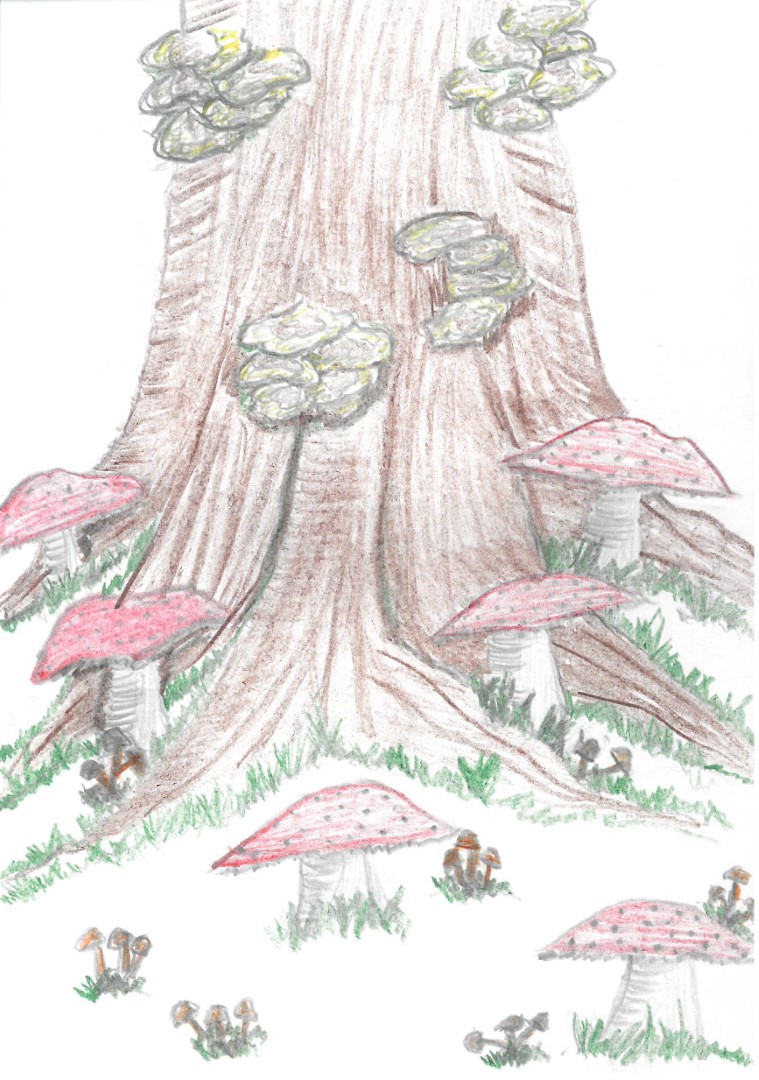
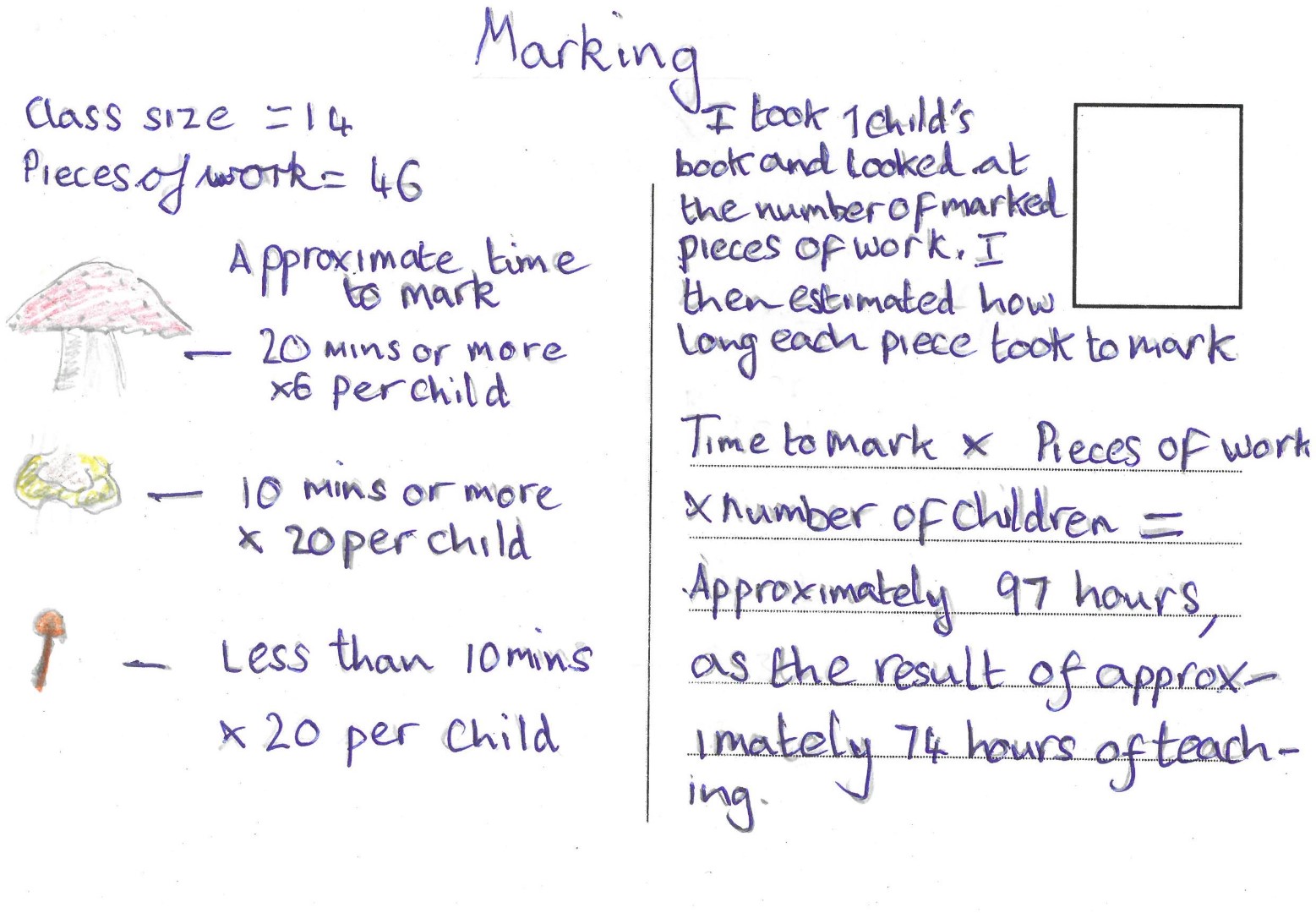
“I showed this to my headteacher.”
“What was the reaction?”
“He was fascinated. Actually he was very much like, 'Oh god, what do we do about that because that's ridiculous'. To his credit he was very – yeah. He sort of wants to talk it through and figure out how we can do something differently than mark so much in comparison to the amount of teaching that's going on.
When it comes to marking there's always this other, this absolute other that it's for, because as much as we would like to tell ourselves we're writing comments for the kids, you know, then what would you do because then you've got to find the time for them to read them, to interact with them. Again, in many ways you're making a rod for your own back because that time then has to come out of your finite amount of teaching time.”
